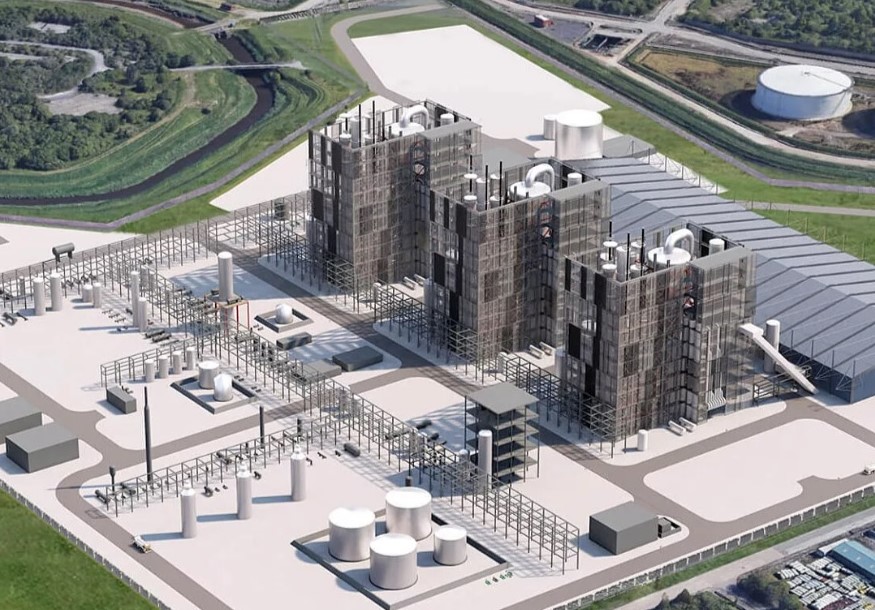Ellesmere Port bags share of £165m aviation fuel pot
The government has awarded Fulcrum BioEnergy £16.5m for a facility at Stanlow that will convert black bin bag waste to jet fuel.
Fulcrum BioEnergy’s NorthPoint facility will convert the waste into liquid fuel on a commercial scale, with operations expected to start in 2027.
The California-headquartered company has been developing the technology in the US, as managing director Jeff Ovens explained:
“This funding will help Fulcrum build on the technical knowledge and experience the company has gained from well over a decade of project development and the early operations of its US based, ‘Sierra BioFuels’ plant – the world’s first waste to sustainable hydrocarbon fuels facility.
“Alongside the operational experience gained from Sierra, this DfT funding will further help de-risk the NorthPoint project and target ‘investor ready’ status, in preparation for construction start in 2025 and operations in 2027.”
Fulcrum NorthPoint as a whole will require a £600m investment.
The proposed development at Essar’s Stanlow plant comes as the latest stage in a series of moves repurposing the oil refinery site for a sustainable future.
The HyNet consortium is looking to build a hydrogen production facility across 160 acres at the site, while a £360m carbon capture plant was announced at the start of December.
Selection by the DfT comes as part of the Government’s £165m Advanced Fuels Fund, which is also supporting four other new plants as part of the “Jet Zero Strategy”.
The five projects are expected to produce more than 300,000 tonnes of sustainable aviation fuel a year, with estimates suggesting their use will reduce CO2 emissions by an average of 200,000 tonnes each year once fully up and running.
Transport secretary Mark Harper said: “Using waste or by-products to refuel airliners sounds like a flight of fancy, but thanks to £165m of Government funding it’s going to help us make guilt-free flying a reality.
“It’s exactly this kind of innovation that will help us create thousands of green jobs across the country and slash our carbon emissions.”
Tim Alderslade, chief executive of Airlines UK, said: “The Jet Zero Strategy was a real statement of intent from Government that aviation, without the carbon, is an achievable end goal by 2050.
“This £165m of funding, alongside the 10% SAF mandate by 2030, shows the Government shares our ambition of a home-grown SAF industry here in the UK. This could generate tens of thousands of jobs and huge GVA, levelling-up and exports potential for the UK. It’s a big prize and one we are committed to working with Ministers to achieve.”
Virgin Atlantic is expected to make the first net zero transatlantic flight in 2023.
Made from waste materials or by-products such as household waste, industrial gases or used cooking oil, sustainable aviation fuels can achieve greenhouse gas emissions savings of more than 70% compared to conventional fossil jet fuel.
The Government has also announced a further £1.2m for the Zero Emission Flight Infrastructure project to help develop key airport infrastructure, such as hydrogen re-fuelling technology, for zero emissions aircraft.





Another reason why the North West is leading on Green Technology.
By Jane Harrad-Roberts